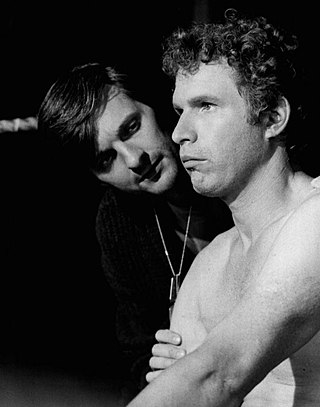"Chief Surgeon Who?" is the fourth episode of the television series M*A*S*H.
"Yankee Doodle Doctor" is an episode of the television series M*A*S*H. It was the sixth episode broadcast and aired on October 22, 1972, and it was rerun April 8, 1973. It was written by Laurence Marks and directed by Lee Philips.
"Bananas, Crackers and Nuts" is an episode from M*A*S*H. It was the seventh episode broadcast and aired on November 5, 1972 and repeated April 22, 1973. It was written by Burt Styler and directed by Bruce Bilson.
"Tuttle" is an episode from the television series M*A*S*H. It was the 15th episode broadcast and aired on January 14, 1973. It was written by Bruce Shelly and David Ketchum and directed by William Wiard. This episode was nominated for a Writers Guild Award.
"Cowboy" was the eighth episode of the M*A*S*H television series. Originally shown on November 12, 1972 and repeated May 6, 1973, it was written by Bob Klane and directed by Don Weis. It is the only first-season episode listed in TV Guide as a "classic episode".
"Henry Please Come Home" was the ninth episode of the first season of the TV series M*A*S*H. It originally aired on November 19, 1972. It was written by Laurence Marks and was directed by William Wiard.
"Edwina" was the 13th episode of the first season of the TV series M*A*S*H. It originally aired on December 24, 1972. It was written by Hal Dresner, directed by James Sheldon and guest starred Arlene Golonka in the title role.
"The Ringbanger" was the 16th episode of the first season of the TV series M*A*S*H. It originally aired on January 21, 1973.
"Sometimes You Hear the Bullet" is the 17th episode of the first season of the TV series M*A*S*H, originally airing on January 28, 1973. This is the first episode in which the medical staff failed to save a wounded soldier, and one of the first episodes of the series showing a member of the hospital staff truly affected by death.
"Dear Dad...Again" is the 18th episode of the first season of the American television series M*A*S*H. It originally aired on February 4, 1973.
"The Longjohn Flap" is the 19th episode of the first season of the TV series M*A*S*H. It originally aired on February 18, 1973, and was the first episode of M*A*S*H to be written by series star Alan Alda.
"Sticky Wicket" is the 21st episode of the first season of the TV series M*A*S*H. written by Richard Baer with the teleplay written by Laurence Marks and Larry Gelbart, it originally aired on CBS-TV on March 4, 1973.
"Major Fred C. Dobbs" is the 22nd episode of the first season of the TV series M*A*S*H. It originally aired on March 11, 1973.
"Showtime" was the 24th episode of the first season of the American television series M*A*S*H. It originally aired on March 25, 1973.
"Abyssinia, Henry" is the 72nd episode of the M*A*S*H television series and the final episode of the series' third season. It was written by Everett Greenbaum and Jim Fritzell, and it first aired on March 18, 1975. The episode is notable for its shocking ending, in which the unit's amiable commanding officer Lieutenant Colonel Henry Blake receives an honorable discharge and leaves for home but, in the final scene, is reported killed by enemy fire. This ending prompted more than 1,000 letters to series producers Gene Reynolds and Larry Gelbart, and drew fire from both CBS and 20th Century Fox.
"To Market, to Market" is the second episode of M*A*S*H. It was first aired on September 24, 1972 and repeated on April 29, 1973. Like many other M*A*S*H episodes, this one parodies army bureaucracy.
"5 O'Clock Charlie" was the 26th episode of the M*A*S*H television series, and second of season two. The episode aired on September 22, 1973.
"Radar's Report" was the 27th episode of M*A*S*H, and third of season two. The episode aired on September 29, 1973.

"Requiem for a Lightweight" is the third episode of the television series M*A*S*H. It was first aired on October 1, 1972 and was repeated on December 31, 1972, the first episode of M*A*S*H to do so. In Watching M*A*S*H, Watching America, a sociological examination of M*A*S*H as an illustration of shifting American values in the 1970s and early 1980s, James H. Wittebols cites this episode as an example of the sexual humor which was common in early M*A*S*H episodes, but downplayed later in the program's history.

